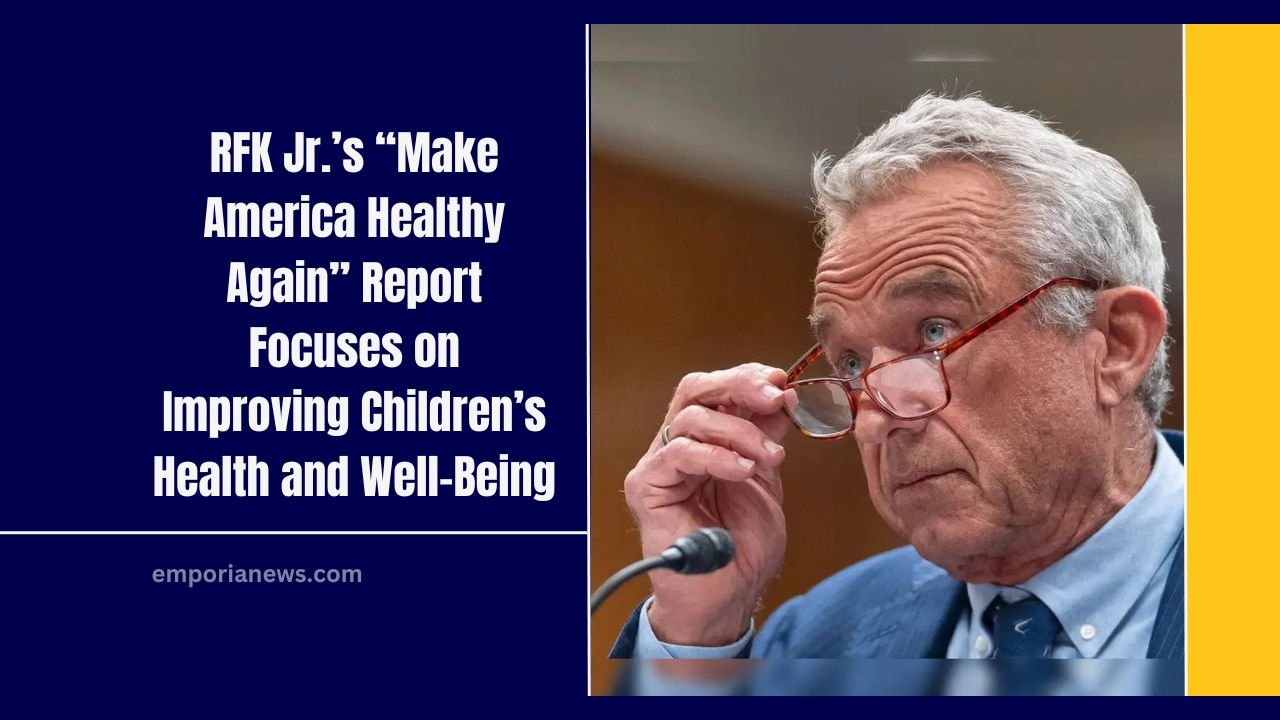In a push to address America’s growing public health challenges, Robert F. Kennedy Jr. spearheaded the “Make America Healthy Again” (MAHA) report, released earlier this year.
The 73-page report provides a comprehensive assessment of the United States’ child health crisis and proposes a roadmap to improve nutrition, physical activity, sleep, and reduce stress among youth.
While the report offers bold solutions to enhance public health, it also faces criticism from some sectors, particularly from the agriculture industry and mainstream farm groups.
Despite differing opinions, RFK Jr. and his team stress the importance of children’s well-being as a national priority.
Key Areas Highlighted in the MAHA Report
The MAHA report underscores four core areas that need urgent attention: nutrition, physical activity, environmental factors, and overmedicalization.
The commission has laid the groundwork to address each of these areas with the goal of transformative public health reforms.
1. Nutrition and the Food System
The report critically examines the food system in America, focusing on the rise of ultra-processed foods and their correlation with increasing rates of chronic diseases.
RFK Jr. acknowledged that while American agriculture has achieved significant milestones, there has been a troubling shift towards corporatization and consolidation within the food sector.
| Issue | Details |
|---|---|
| Ultra-processed foods | Rising consumption linked to chronic diseases like obesity, diabetes. |
| Pesticides | While concerns about pesticides like glyphosate are raised, the report stops short of recommending an outright ban. |
The report emphasizes that nutrition plays a key role in the overall health of children, linking poor dietary habits with higher rates of mental health disorders, diabetes, and obesity.
2. Physical Activity
According to the report, physical inactivity among youth is a growing concern. Over the years, children have seen a decline in physical activity, contributing to rising rates of obesity and cardiometabolic diseases.
The report advocates for moderate-to-vigorous physical activity and reduced screen time.
3. Sleep and Stress Management
The report also touches on the importance of sleep and stress management in children’s health.
With rising concerns about mental health, RFK Jr. highlighted the increasing prevalence of social media use, especially among teens.
95% of adolescents are engaged in at least one social media platform, and its impact on mental health is a significant public health issue.
4. Environmental Factors
Another significant portion of the report is dedicated to the impact of environmental factors, especially pesticides and other chemicals, on children’s health.
RFK Jr. noted that while some studies suggest a connection between these chemicals and reproductive issues, further research is needed before making drastic regulatory changes.
Key Findings and Recommendations
1. Mental Health Crisis
The near ubiquity of social media is increasingly linked to mental health issues in adolescents, including anxiety, depression, and low self-esteem.
The report stresses the urgent need to understand and address the long-term impact of these platforms on young users’ psychological well-being.
2. Obesity and Physical Activity
The report found that American youth have experienced a steady decline in cardiorespiratory fitness over the years.
This is partly due to reduced physical activity and increased screen time. Regular exercise, especially aerobic activities, is a crucial aspect of child health.
3. Food Safety and Agricultural Practices
The role of agriculture in shaping children’s health is explored extensively. The report criticizes the industrial farming model that has led to the proliferation of unhealthy, heavily processed food options.
However, RFK Jr. assured that the report does not attack farmers but rather emphasizes the need for systemic reforms to improve the food system.
Criticism and Pushback
While the MAHA report offers a comprehensive strategy to improve children’s health, it has faced criticism from various sectors, particularly the agriculture industry.
The American Farm Bureau expressed concerns over the report’s tone regarding the safety of food production practices and pesticide use.
1. Agriculture Industry’s Concerns
Farm groups, including the American Farm Bureau, have raised concerns about the report’s impact on farming practices.
They argue that it fuels unnecessary fear about the food system without sufficient scientific evidence to back its claims.
2. Gun Violence Exclusion
Critics have also pointed out the absence of gun violence as a topic in the report, despite it being one of the leading causes of death among American children. Gun deaths in children and teens have risen significantly, with more than 2,500 deaths in 2022 alone.
Experts argue that ignoring this issue undermines the report’s efforts to address child health comprehensively.
RFK Jr.’s “Make America Healthy Again” report brings much-needed attention to the health of children in the United States.
By addressing critical issues like nutrition, physical activity, mental health, and environmental impacts, the report aims to pave the way for future reforms.
However, while the report has received praise for its ambition, it has also faced significant criticism, particularly for overlooking key issues such as gun violence and its approach to agriculture.
Despite these challenges, the report serves as a starting point for a much-needed conversation on improving the well-being of the nation’s youngest citizens.




